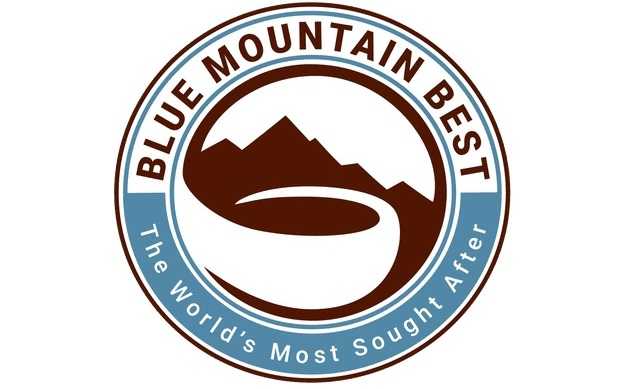CHEYENNE, WY, USA – Blue Mountain Best, a commercial producer of Jamaican Blue Mountain coffee, has been released an explanation of how soil, weather, and altitude determine the best coffee flavor. Coffee has been a beloved global beverage for years. But have you ever thought about what makes each cup distinctive?
Many variables go into creating the perfect cup of coffee, from the aroma and taste to the texture. Premium beans, fresh water, and appropriate brewing techniques matter.
Passions for coffee often turn toward discussing environmental factors. For example, soil composition, weather conditions, and altitude are key components in producing superior coffee. And naturally, these factors will determine the coffee flavor.
Coffee Misconceptions
Many assume coffee beans are grown in the same way worldwide.
The complex flavors of arabica beans differ from those of robusta beans because they’re grown in different locations and conditions.
Coffee plants, especially Coffea arabica, which represents 60% of coffee traded globally, require specific conditions to thrive and cultivate high-quality beans. Various altitudes in distinct regions and their environments, like healthy soil and organic matter, produce the qualities. Even the way farmers handle the beans will affect the taste.
Acidic volcanic soil in many coffee-producing countries requires differently cultivated beans to realize the best outcome. For example, Jamaican Blue Mountain farmers harvest the coffee cherry when it’s around 95% ripe. Their process is more labor intensive, requiring handpicking and manually removing defective beans. But you cannot mistake its sought-after flavor for coffee from other countries.
Soil, Weather, and Altitude
These three are key components in producing the best coffee flavor.
Soil
The best soil composition for growing coffee is generally moist, shady, and fertile.
In addition, the soil should be rich in organic matter. For example, the pH balance in Brazil should be between 6.0 and 6.5 for optimal growth.
Altitude
Generally, higher altitudes produce better-quality beans because it is cooler and has more precipitation.
They also have more ventilation and are less likely to allow crops to be infested with bugs. Their growth is slower but results in a more concentrated flavor.
Weather
The weather is also vital, as the ideal climate for growing coffee should be warm and humid. For arabica beans, the optimal temperatures should range from 18-21°C (64-70°F).
Coffee plants also need plenty of rainfall to thrive. In higher altitudes, where temperatures are higher, the sun is great at helping grow a higher yield of coffee plants. That’s why tropical climates, with a good balance of sun and moisture, are ideal for coffee development.
Gourmet Coffees from Around the World
Gourmet coffees worldwide are renowned for their unique flavor profiles and complexity. Coffee is not just a commodity but a delicacy, and there are many enthusiasts that are always looking for the best product.
African coffee
Two of the most famous African coffee-producing countries, Kenya and Tanzania, have high altitudes, rich volcanic soil, and a tropical climate creating ideal growing conditions.
Kenyan coffee is known for its vibrant acidity, full body, and fruity notes. However, Tanzanian coffees have a more subtle flavor profile with hints of nuts and rich chocolate.
Hawaiian coffee
Hawaiian coffee is increasingly popular thanks to its versatile flavor profile, low acidity, and smooth finish.
Grown in the rich volcanic soil of the Kona region, Hawaiian coffee is sweet with notes of tropical fruit and nutty undertones. The region’s high altitudes and mild climate allow full-bodied and aromatic coffee beans to thrive there.
Jamaican coffee
Jamaica Blue Mountain coffee’s rich aroma and abundant flavors are the product of its geographical location.
With altitudes around 2,500 to 5,500 ft., Jamaica’s Blue Mountains have cloud cover—thanks to the thick rainforest surrounding the coffee—for half of the day. Such a unique environment gives beans from this region a remarkable taste.
And as mentioned, the handpicking process to sort out the coffee beans is meticulous. The special care of the communities working with Blue Mountain coffee results in the perfect recipe for a gourmet taste.
What Coffee Connoisseurs Look For in a Brew
Coffee connoisseurs have taken their passion for the cultivation and variation of coffee to a new level. These specialists look at everything from farming methods to brewing techniques to determine what makes an exciting experience.
When evaluating a brew, the connoisseur will look at the following:
- Aroma
- Clarity
- Texture
- Body
- Acidity
- Sweetness
The bean’s origins and cultivation are essential for determining these.
In the global specialty coffee market, a rise in demand is expected to be up to 12.9% by 2030. As the market grows, coffee connoisseurs will go to even more lengths to find the best beans, the most ideal growing conditions, the most exciting farming practices and the communities they create that is all a part of a great experience when sitting down to enjoy a cup of coffee.
Conclusion from Blue Mountain Best
Different regions worldwide, from Kenya to Jamaica, offer diverse variations of what creates a gourmet cup of coffee. Although they may share similar volcanic soil, everything from farming and handpicking methods to the earth’s chemical balance will affect coffee flavor.
That’s why what you sip in Colombia will differ from your cup in Jamaica. No two coffees are the same, but our world is richer because of it.


















